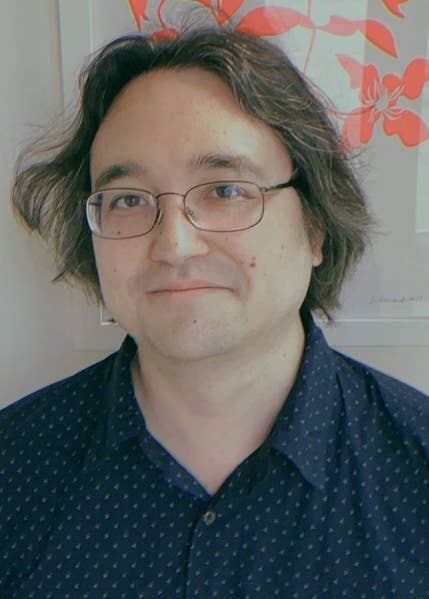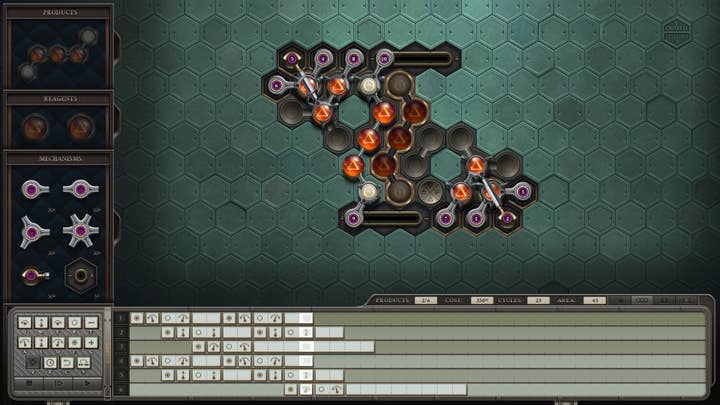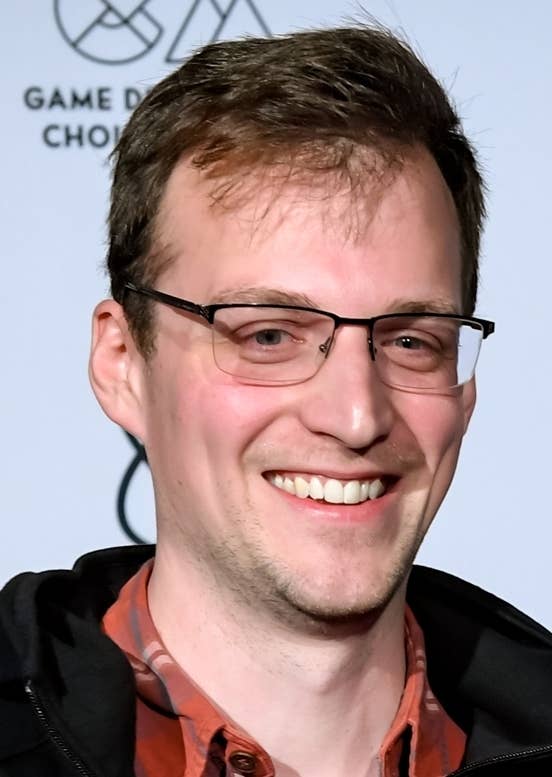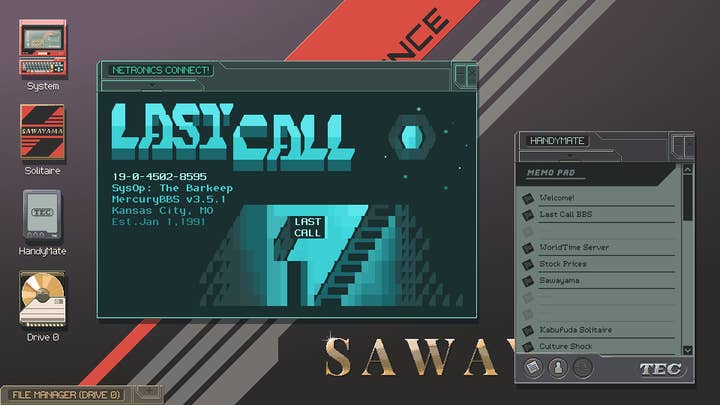Why Zachtronics is shutting down for good this time
Zach Barth, founder of the beloved indie studio, and audio and narrative director Matthew Burns share the challenges of the indie space - and what might come next for the team
About two and a half years ago, Zachtronics founder Zach Barth and the studio's audio and narrative director, Matthew Burns, went for a walk.
During the course of their conversation, Barth said that he wanted to shut down the developer. In short, he had become tired of working there.
"I would say over the years game after game it started to feel samey. I felt like my job started to become more boring every day," he tells GamesIndustry.biz. "Every day we explored the same space more thoroughly and we didn't like exploring new spaces."
Burns adds: "The decision to close Zachtronics came from a desire to try something new. Over the years, we'd found a niche that was really great for us. We really enjoyed playing in that niche and making games for that audience, but it wasn't something that we wanted to do forever.

"It was something that we like doing, but I think all of us on the team were all interested in exploring brand new concepts and things that we couldn't really have done as Zachtronics because over the years we ended up not necessarily making the same game, but very similar games. They were always about the same size and scope."
Since its inception back in 2000, Zachtronics has mostly focused on puzzle games. It is famous for the likes of Opus Magnum, SpaceChem, Shenzhen I/O and Infinifactory. But it has also made other kinds of titles; for example, back in 2013 it released strategy title Ironclad Tactics, before launching visual novel Eliza in 2019. All of which is to say that while yes, Zachtronics has focused on puzzle games, it's not all it has made. So why does the studio have to disband to explore these new ideas?
"They weren't as successful as our puzzle games, to be honest," Barth admits.
"We're able to do a variety of games, but there are other things you can't change up. We can't change our business model effectively, because we have to keep making the same amount of money, otherwise we can't pay everybody. We like each other, but the way you work with different people is that you either hire them on, which requires expanding, or you fire and replace them or they leave.
"Our stuff was simple by the necessity of having to turn out a game once every year with a five-person team, so there are limits to what we can explore in the huge broad space of what is game development as an industry and a career. There's a whole process thing. When people look at us, they see our games and they see the game content, but there's this whole machine, lurking behind the scenes, that makes games that exist at our company and at every company. That's a huge part of the day-to-day experience for us. We spend a year grinding in that machine and then we output a game and people just see the output. They don't see the process."
Another part of the reason to close is due the sheer pressure of being an independent developer. As beloved and influential as Zachtronics is, that doesn't mean it is somehow immune from the same forces that act on every studio in the indie space.
"We were always right on the edge of being reliable, but always one game away from failure"
Zach Barth, Zachtronics
"We've been very fortunate, but the indie games industry is a tough place," Burns explains. "It's hard to stand out. There are more games being released than ever and it's a little bit harder to stand above the crowd. I don't want to say that that was a huge factor but it was definitely in our thinking. It's a little bit tougher to chart a course."
Barth adds: "We've been successful. A lot of people struggle to get anybody to look at their game. So we managed to at least break even, which is not true for a lot of people. But we were never super comfortable; we were never making ten times our costs. When you make 10-to-100 times how much you spend on something, you now have something like a 50-person studio and you can make whatever game you want at least once, right? Whereas we were always right on the edge of being reliable, but always one game away from failure."
Though we are used to seeing companies closing down in games, normally it's the result of some kind of financial implosion or a decision made by a developer's corporate overlords. Seeing a studio decide to close itself is, well, pretty unusual.
"We made a deliberate decision to do this. It's not a result of pressure or anything like that," Burns explains.
"It's a result of thinking about what we want to do in the long term. It's a little bit like when you play in a band for ten years with your bandmates, even if it's really great -- which it is -- there's just a sense of wondering what else is possible; what else can each of us do? We want to explore that. So that was a decision specifically that we made."

Barth compares the situation to OODA loops, something he researched during the creation of 2020's strategy title Mobius Front '83. This is a military acronym -- Observe, Orient, Decide, Act -- which, in part, is about controlling the flow of battle.
"I really like the metaphor of thinking about tempo," he says. "How do you do things such that you're in control of the situation and not somebody else? This seems like the right decision for us to make right now in order to be in control of what we're doing; rather than reacting to things, we are being proactive."

Though Zachtronics is closing down, it's only really doing so in the sense that it won't be making any more games -- hence all of its development staff no longer working at the studio.
The company itself is still going to exist and its games will still be available for purchase. Barth will even be around to address any problems that might arise. That's obviously an important thing at a time when games can be rendered unplayable due to companies opting to turn off the servers when they are no longer making money.
"Our games aren't going to be removed from Steam," Barth says. "They still make money so we're going to keep selling and maintaining them for as long as we can. There's going to be this ongoing thing for as long as possible to keep the games running.
"We're not even doing this despite the circumstances. Nothing has changed with regard to the viability of the games in the market. It's not like these are multiplayer games that have huge server expenses and we're keeping the servers running until our costs exceed our income and then we just shut it down. These games are going to live forever. If anything, one of the things we've done over time is cut all the servers out of our games and make them completely standalone forever games."
Of course, Zachtronics has closed before. In 2015, the company was shut down when Barth landed a job at Valve working on SteamVR. Ten months later, he left and reformed his company, which had been bought by Alliance Media Holdings. That left Barth and the team free to worry about the development side of things, while Alliance handles the business and publishing side of things.
Given that Zachtronics has come back before, we have to ask why the studio is saying so definitively that this is the end this time around.
"We really enjoyed playing in our niche, but it wasn't something that we wanted to do forever"
Matthew Burns, Zachtronics
"One of the things that was interesting when we restarted Zachtronics was that it was a different team," Barth says.
"When we shut down, there were people who left and didn't come back. Matthew had done a little bit of contract work with us before, but when we restarted Zachtronics in 2016, it was with Matthew as a full-time core part of the studio. It was a new thing with the same name. It wasn't even restarting the studio.
"So, are we going to keep making games? Probably, but who knows what the context is. I think with this time it's pretty safe to say that if we do more game stuff, it'll look more different than last time."
When Barth and Burns discussed closing Zachtronics two and a half years ago, Barth promised Alliance Media Holdings that it would finish Mobius Front and whatever project came after that. This latter game turned into Last Call BBS, which is the studio's last brand new game. It launched on Early Access on Steam back on July 5th and is a nostalgia-rich experience that harkens back to a simpler time for technology: the 1990s.
"That's just an era of personal computing that both Zach and I are really interested in and maybe obsessed with, you could say," Burns explains. "We really loved the freedom that those computers represented. It was before there were all of the ills of the internet and social media that we associate with now. It was really a field of potential, so there's a little bit of nostalgia and thinking about the promise that was held by that era. That was really the theme of the game from the beginning and then having it be a little bit of an elegy seeped in overtime, I would say."
Zachtronics still needs to finish the 1.0 version of Last Call BBS, but it still has one more card up its sleeve: an anthology of its solitaire games. The plans for this are slightly more up in the air.
"I don't know when that's going to come out or what platforms it's going to come out on, but I really want to be able to play my solitaire games on my iPhone," Barth laughs. "That's the motivation there. We only have Shenzhen Solitaire on there right now and I played way too much of that over the last year. So I need some variety in my solitaire playing."

Initially, Barth's plans post-Zachtronics involved a job teaching. The COVID-19 pandemic meant that work slowed down on the game the studio was working on at the time, which gave him time to give teaching high school computer science a try.
"It was my first and last year of teaching," he laughs. "I am a better game developer than a teacher."
Though the Zachtronics team are going their separate ways, they are all still friends. While it's unlikely they'll ever make a game together again, the likelihood of them working together in some capacity is pretty high. Looking to the future, there's a wide open plain in front of the Zachtronics team.
"One of the things that I'm really excited about is just the absolute openness of just having nothing planned," Barth says.
"The studio structure of Zachtronics is rooted in the way things were ten years ago. A lot has changed in life and in work in the last decade. The thing that I'm really excited about is the idea of building new ways of working. What is an indie? What does making games -- indie or not -- look like now that we're deep into the 21st century? How do you build something that responds to the new environment? Being completely free to reimagine that as very exciting."
Burns adds: "It's pretty open. I would say there are definitely some things that we're looking at, but they're things that it's a little bit too early to talk about. They're definitely things that are in themes that we've thought about before - education and narrative games and exploring what's possible by combining those things. That's really about as far as it's got for now. The idea is to have as wide an open horizon as possible and we'll see what happens.
He concludes: "The spirit of Zachtronics is often to just try things, whether it will work or not. We are just going to try some things and see what happens."
